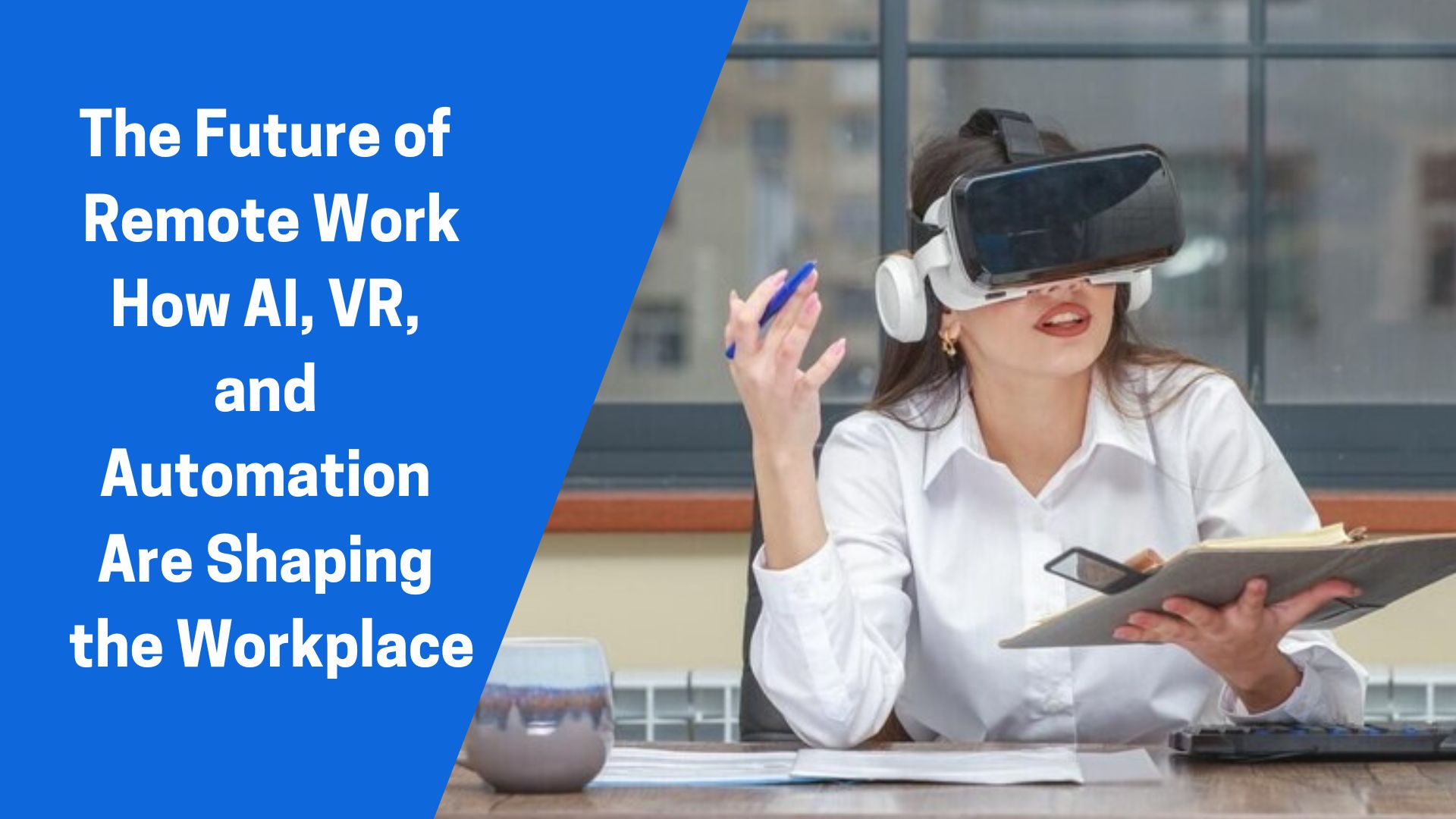Remote work has transformed from a pandemic-driven necessity to a long-term shift in how businesses operate. With advancements in AI, virtual reality (VR), and automation, the workplace is evolving into a hybrid, digital-first environment. Here’s how technology is reshaping the future of work.
1. AI-Powered Workflows & Automation
1.1 AI-Powered Productivity Tools
- AI-driven platforms like ChatGPT, Notion AI, and Grammarly are streamlining tasks like writing, research, and scheduling.
- Automated assistants can handle emails, schedule meetings, and summarize reports, reducing workload.
1.2 AI in Hiring & HR
- AI-powered recruitment tools (like HireVue and Pymetrics) can screen resumes, analyze interviews, and predict candidate success.
- AI-driven HR chatbots help employees with onboarding, payroll, and benefits.
1.3 Automation for Repetitive Tasks
- Robotic Process Automation (RPA) is reducing manual work in industries like finance, customer service, and healthcare.
- AI-powered workflow automation tools like Zapier and UiPath are helping teams eliminate repetitive tasks.
2. Virtual Reality & The Metaverse Workplace
2.1 Virtual Offices & Digital Workspaces
- Platforms like Meta’s Horizon Workrooms and Microsoft Mesh are creating immersive VR office spaces for remote teams.
- Employees can interact in a virtual environment using avatars, virtual whiteboards, and 3D presentations.
2.2 VR for Training & Collaboration
- VR simulations are revolutionizing corporate training, allowing employees to practice skills in realistic virtual settings.
- Companies like Accenture and PwC are using VR for employee onboarding and team-building exercises.
2.3 Augmented Reality (AR) for Remote Assistance
- AR-powered tools (like Microsoft HoloLens) allow remote workers to interact with real-world objects using digital overlays.
- Industries like engineering, healthcare, and manufacturing use AR for hands-on training and remote troubleshooting.
3. Hybrid Work Models & Smart Offices
3.1 AI-Optimized Hybrid Workplaces
- AI is helping businesses analyze employee productivity and optimize hybrid work schedules.
- Smart office solutions like Cisco Webex and Zoom Rooms use AI to enhance video conferencing and workspace management.
3.2 Smart Home Office Technology
- AI-driven ergonomic desks, smart lighting, and noise-canceling workspaces improve home office productivity.
- IoT-powered home automation adjusts lighting, temperature, and screen settings to reduce eye strain and fatigue.
3.3 Digital Nomad Boom & Co-Working Spaces
- More professionals are embracing digital nomad lifestyles, working remotely from different locations.
- Smart co-working spaces with AI-managed bookings, automated climate control, and contactless security are becoming popular.
4. Cybersecurity & Data Privacy in Remote Work
4.1 AI-Powered Cybersecurity
- AI-driven security systems detect and prevent cyber threats in real time.
- Companies are investing in zero-trust security models to protect remote networks.
4.2 Blockchain for Secure Transactions & Identity Management
- Blockchain is being used for secure remote contracts and digital identity verification.
- Decentralized authentication prevents hacking and phishing attacks in remote work setups.
4.3 Privacy Concerns with AI & Remote Monitoring
- AI-driven employee monitoring tools track productivity, raising ethical concerns.
- Companies are balancing security and employee privacy with transparent policies and opt-in tracking.
5. The Future of Work: What’s Next?
- AI-powered virtual assistants will handle more complex tasks, freeing up employees for creative work.
- Holographic meetings and VR collaboration will replace traditional video calls.
- Remote work will become more personalized, with AI curating work schedules based on productivity patterns.
- Decentralized autonomous organizations (DAOs) could redefine corporate structures, allowing remote teams to work without centralized management.
Final Thoughts: The Digital Workplace Revolution
The future of work is AI-driven, immersive, and highly automated. Whether it’s VR meetings, AI-enhanced workflows, or smart offices, technology is shaping a more flexible and efficient work environment.
Would you prefer working in a VR office or a hybrid workspace? Let’s discuss!

